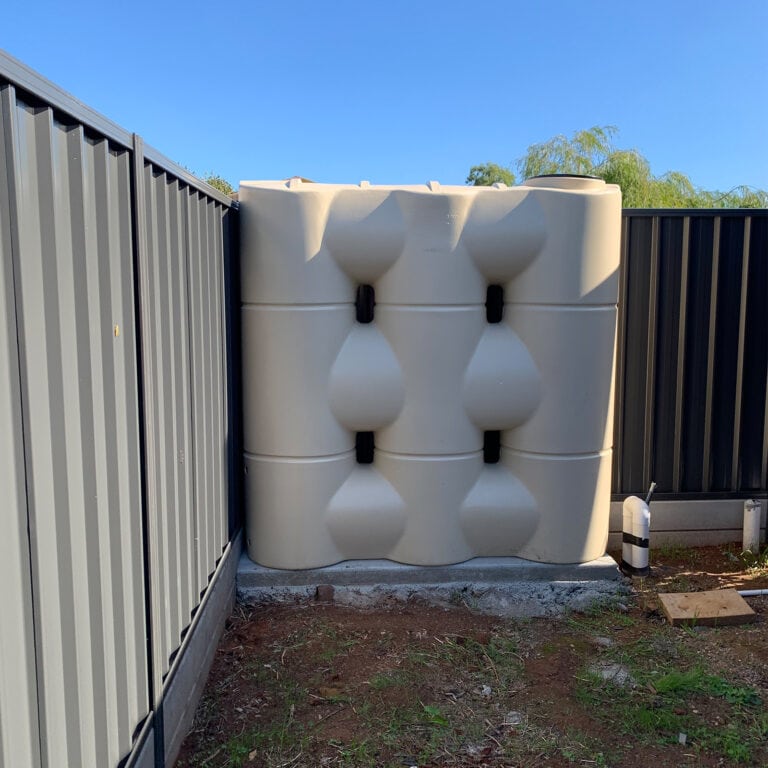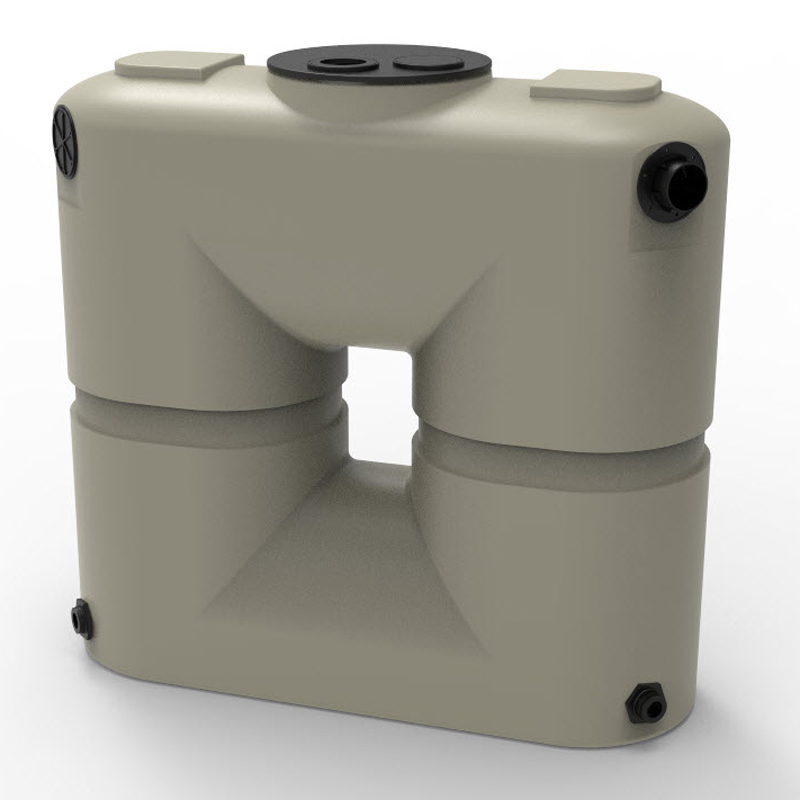Exploring the Numerous Usages of Rain Containers for Residential and Commercial Characteristics
As the worldwide focus on lasting living techniques proceeds to increase, the utilization of rain tanks in both property and business setups has emerged as a significant service. The complex uses of rain tanks present a compelling case for their fostering, not only as a functional water-saving step but additionally as a testament to liable resource management.
Benefits of Making Use Of Rainwater Storage Tanks
Making use of rain tanks provides many benefits for both families and neighborhoods in terms of water preservation and sustainability. One of the essential benefits of making use of rainwater containers is the significant reduction in dependence on mains water system - Slimline water tanks. By capturing and saving rain for later usage, individuals and neighborhoods can lower their demand for cured water, inevitably reducing the concern on water treatment centers and lowering power consumption related to water transport and treatment
Moreover, rainwater harvesting with containers provides a reliable different water source during times of water restrictions or shortages. This stored rain can be used for various non-potable functions such as watering, flushing toilets, and washing clothing, minimizing the stress on standard water sources. Additionally, using rainwater storage tanks can result in cost financial savings for both homes and communities by decreasing water bills and lowering the requirement for expensive infrastructure expansions to meet expanding water needs.
In significance, the usage of rain storage tanks provides a sustainable and eco-friendly approach to water administration, profiting both private customers and the wider area in terms of water conservation, cost-efficiency, and resilience.
Rain Container Use in Irrigation
Offered the benefits of rainwater storage tanks in conserving water resources and minimizing dependence on keys water supply, a significant application hinges on making use of stored rain for irrigation objectives - Slimline water tanks. Rain collecting systems can efficiently gather and save rainwater, supplying a sustainable water source for sprinkling yards, lawns, and agricultural areas. By making use of rainwater for irrigation, homeowner can minimize their dependence on cured water resources, bring about set you back financial savings and environmental advantages

Among the main advantages of using rainwater for watering is its pureness. Rainwater is normally soft and without the chemicals and additives typically located in mains water, making it excellent for nourishing plants without the danger of damaging results. Furthermore, rain is at ambient temperature level, which can benefit plant development by staying clear of temperature level shocks that can accompany chilly mains water.
Rain Storage Tanks for Commode Flushing

Carrying out rainwater tanks for bathroom flushing is an affordable and environmentally pleasant practice that can be easily incorporated into both domestic and commercial properties. The saved rainwater can be used to flush commodes by attaching the storage tank to the existing plumbing system. This basic yet effective service can dramatically lower water intake in a building, especially in locations where water deficiency is an issue.

Integrating Rain Containers in Landscaping
These tanks can record and save rain drainage from roofing systems, which can after that be made use of for watering yards, yards, and plants. By utilizing rain for irrigation functions, home owners can reduce their reliance on community water sources, leading to cost financial savings and conservation of priceless water sources.
In enhancement to offering a lasting water resource Our site for landscaping demands, rain storage tanks can also assist in taking care of stormwater runoff. By catching rainwater that would otherwise flow right into tornado drains, these tanks can reduce erosion, lower flooding threats, and prevent pollution of all-natural water bodies. Moreover, incorporating rain containers in landscape design can add to the total visual appeal of the residential or commercial property, showcasing a dedication to ecological stewardship.
Business Applications of Rain Storage Tanks
Using rain storage tanks in industrial setups provides a lasting service for water administration and conservation, profiting organizations and the atmosphere great post to read alike. Business applications of rain storage tanks are varied and progressively prominent as a result of the price financial savings and ecological benefits they give. One key business usage is for watering functions, where collected rainwater can be made use of to water landscaping, gardens, and farming areas surrounding commercial residential or commercial properties. This can bring about considerable decreases in water bills and reliance on local water sources.
In addition, rain gathered in containers can be dealt with and made use of for non-potable objectives within commercial buildings, such as flushing toilets, cleansing, and cooling down systems. Overall, the incorporation of rain storage tanks in industrial setups presents a functional and eco accountable method to water monitoring.
Final Thought
In final thought, rain tanks offer numerous benefits for both residential and industrial residential properties. From irrigation to bathroom flushing and landscaping, using rainwater containers can help conserve water sources and minimize water bills. Furthermore, incorporating rain containers in business settings can cause considerable expense financial savings and ecological advantages. Overall, the adaptability and sustainability of rain containers make them a valuable investment for any kind of homeowner wanting to enhance water efficiency.